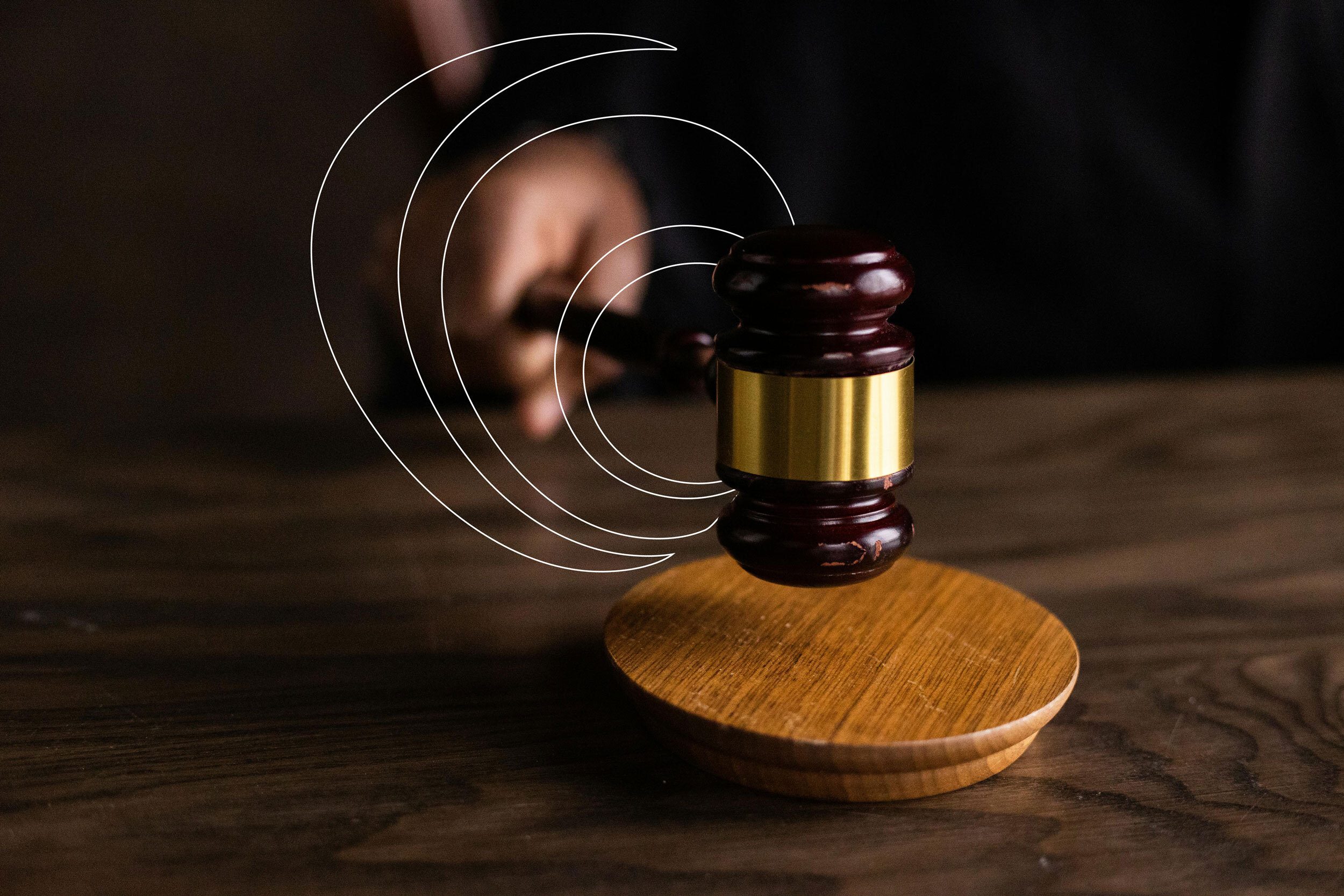
The Danish legal system is divided into three main tiers; the district courts, the High Courts (Western and Eastern), and finally the Supreme Court
In addition to the standard 3-tier system above, there are a number of specialized courts. Most notably, the Maritime and Commercial High Court is relevant when doing business in Denmark. Business cases with a high degree of complexity would start in the Maritime and Commercial High Court. This is to ensure that the court and judges have the necessary understanding of business relations.
This article is relevant to you if you are involved in a court case in Denmark. Or if you are considering making a claim against someone in Denmark.
What you should know
- Court cases – including all the supporting documentation – are managed digitally in Denmark.
- The claimant (plaintiff) is required to pay two court fees, one when filing the claim, and another one before the court hearing.
- The court fees are calculated based on the value of the claim, and cannot exceed a total of DKK 161,500.
- It is possible to request court-mediation prior to litigation, when you file your claim.
- Court hearings are conducted in Danish, but you are entitled to an interpreter if you do not speak the language.
- Usually a court case would have a duration of 12-24 months in the first instance.
- The losing party will be required to reimburse some of the winning party’s legal costs. However, such reimbursement typically only amounts to 1/3 of the winning party’s actual legal costs.
- The judgement can be appealed to a higher instance.
If ordinary debt collection in Denmark does not entice the debtor to paying because the debtor does not agree with the claim, the matter will be settled by the ordinary courts instead.
In Denmark, court cases will usually start in a district court (first instance) and have an average duration of 12-24 months. Small cases under 50,000 DKK can be filed and prepared by the parties themselves, although it is strongly recommended to hire an experienced trial / attorney for the court hearings.
The phases of a court case is as follows:
First phase: Attorneys’ general obligation to try to find an amicable solution or settlement
Under the ethical rules for attorneys in Denmark, an attorney is obligated to consider and advise their client about the possibility of finding an amicable solution, before bringing an action to court. However, it is not always easy to find common ground and court proceedings may be the only option to resolve the dispute.
Second phase: Preparation for Court hearing
Written preparation and fees
The claimant/plaintiff will start the process by preparing a claim form (Danish: “stævning”).
The claim form is sent to the district court (in the majority of cases) as well as to the respondent / defendant.
Once the court has registered the court case in the Danish electronic court system, the respondent will be given 2-4 weeks to contest the claim in a statement of defence (“svarskrift”).
Usually, the particulars of the claim will not be entirely clear based on the claim form and the statement of defence alone. Instead, the parties would exchange additional pleadings, including a reply (“replik”) and a rejoinder (“duplik”).
When submitting the claim form the claimant must pay the first of two court fees. The court fees will be calculated by the Danish Court Administration, based on the value of the claim. Typically, the court fees are relatively small and in any case cannot exceed 161,500 DKK in total.
In addition to the first court fee, a second fee must be paid if the case has not been settled prior to scheduling the actual court hearing.
Are you considering making a claim against someone in Denmark? You can access the court fee calculator here. As the calculator is in Danish, let us know if you need help.
Since 2017, all new civil and commercial cases are created and handled through the Danish digital legal system called minretssag.dk – literally translated into “my court case. dk”.
Court mediation
In most cases, except for criminal cases, it is possible to request court-led mediation. Although the parties’ negative emotions towards each other usually makes it difficult to pursue mediation, it is our experience that court-mediation delivers faster and better results than through litigation.
Especially in contractual relationships between parties who often do business with each other, we recommend solving the disputes by mediation rather than through litigation. Even though a dispute is never something two parties wish for, it might actually leave the parties’ business relations and communication stronger if the dispute is settled by mediation or negotiations, rather than through the regular court system.
(Court) mediation is 100 % voluntary in Denmark and a failure to find a solution through mediation will not prejudice the parties’ position later in the court hearing, or be considered by the court to the detriment of one party or the other.
Court mediation either starts by the plaintiff requesting such mediation and the defendant agreeing, or alternatively, by the court on its own motion, suggesting the parties to mediate, when preparing the court case.
If the parties under mediation find a solution, an agreement will be issued by the court and the court case ends. If the parties do not agree on a solution, the case will continue its process towards the actual court hearing.
Third phase: Court hearing
If the parties do not settle the matter sometime during the written preparation of the court case, eventually the parties will have to appear before the court for the actual court hearing.
Procedure
In court, the hearing will begin with a presentation of the parties under which each attorney will present their client’s overall claim. Then the claimant will read out all the relevant documents in court.
Following the attorney’s presentation, the parties themselves will “give evidence”, i.e. provide their views of the facts during an interview by their attorney followed be a cross-interview by the opposing attorney.
After the interviews of the parties, the court will proceed to hear the witnesses, including any expert witnesses.
Finally, the court case is concluded by the closing arguments by the attorneys. The closing arguments is where the attorneys match the facts with the correct legal arguments to present their client’s case to the court favourably.
Court proceedings are conducted in Danish. However, it is possible for non-Danish speakers to request an authorized interpreter.
Language
Court proceedings are conducted in Danish. However, it is possible for non-Danish speakers to request an authorized interpreter.
Documents in English, Swedish and Norwegian will usually be accepted by the Danish courts without a certified translation.
Court decision / judgment
In the majority of cases, the matter will not be settled by the court during the actual court hearing. Instead, the court will provide their decision on the matter in writing within 2-4 weeks from the court hearing.
However, occasionally, the court will finish the court hearing by asking the parties whether they are interested in a so-called “preliminary statement of the outcome of the case”. If both parties accept, the judge will leave the courtroom to consider the outcome of the case and return with a conclusion.
Although this oral conclusion is not binding for the court or the parties, it would be typical for the parties to consider settling the matter based on the court’s oral conclusion. However, the parties’ attorneys may advise their clients to wait for the actual written judgement.
The advantage of waiting for the actual written judgement from the court is that it is only possible to appeal a written judgement to the higher instance is possible.
As a general rule, the party that loses bears the court costs.
Costs
As a rule, the losing party bears the court costs. The court costs mainly consist of court fees, fee to any expert witnesses and (part of the) attorneys’ fees. If the outcome is in both parties’ favour, or if the matter has not been very clear, the Court sometimes choose to decide that each party should bear their own costs.
The judge will decide on the court costs to be awarded based on the following: the value of the case, the extent of the case and the significance of the case for the parties. Usually, the losing party will be obligated to pay the court costs, the lost claim and the interest within 14 days from the day of the written judgment.
If your business has an insurance that covers legal assistance, court costs can possibly be offset and paid by such insurance.
Fourth phase: The appeal to a higher instance
Although Denmark has a 3-tier court system – district court, high court, supreme court – the system is de facto only a 2-tier system as you are only allowed to appeal your case once under normal circumstances.
Limits to appeal
If one of the parties is unsatisfied with the judgement rendered in the first instance, the decision can be appealed to a higher instance, typically one of the high courts (Western or Eastern High Court).
Although Denmark has a 3-tier court system – district court, high court, supreme court – the system is de facto only a 2-tier system, as you are only allowed to appeal your case once under normal circumstances.
If the value of a case is very small:
Cases of value less than 20,000 DKK require express authorization of the Danish Appeals Permission Board (“Procesbevillingsnævnet”). The application for such permission should be submitted within 4 weeks, from the day the “non-appealable” judgment was delivered.
Deadline for appeal
Deadline for appeal is 4 weeks, from the day when the judgement was issued. However, as the losing party has to pay the awarded court costs, lost claim and interest after 2 weeks unless the judgment is appealed by that time, it is our recommendation that you appeal a lost case within 2 weeks, as it will have suspensive effects on the payments.
Appeal proceeding and fees
Appellation constitutes a new treatment of the case and a new court hearing. Thus, almost the same rules regarding court fees will apply. However, there will be a minimum fee of 1-2,000 DKK in case of appellation.
To some extent, new evidence can be presented in the appeal case, but it will not be possible to make entirely new claims.
Do you need an attorney/lawyer for a court case in Denmark? Contact today attorney-at-lawyer Nicholas Ørum Keller, Baker Tilly Legal.

If you need our experience in litigation in Denmark to help you to make the optimal choices for your business in case of a dispute or court case.





